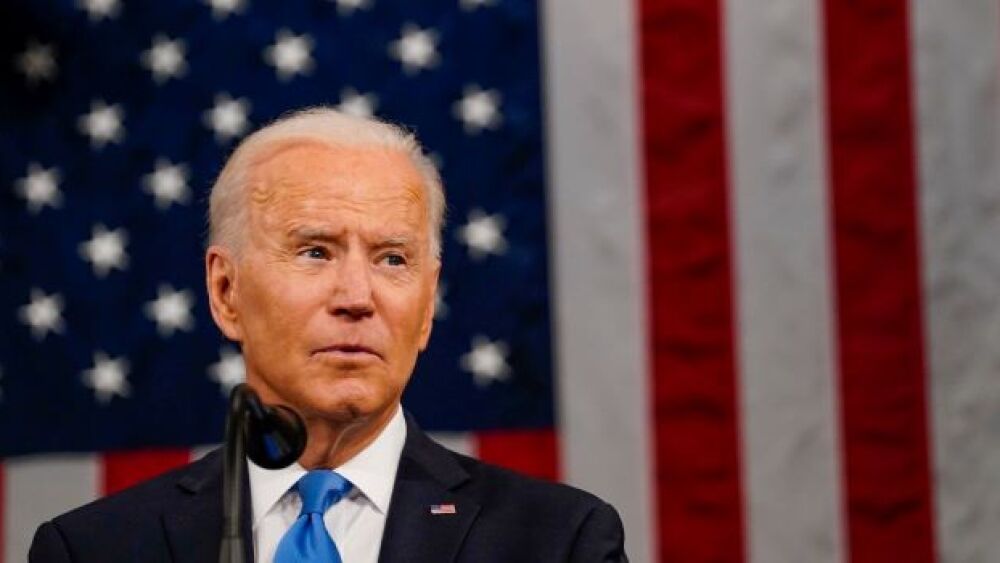Biden issued an executive order to keep U.S.-based innovation ahead of advances made by counterparts in China biotechnology and biomanufacturing Monday.
Courtesy of Melina Mara-Pool/Getty Images
Pres. Joe Biden issued an executive order to keep U.S.-based innovation ahead of advances made by counterparts in China biotechnology and biomanufacturing Monday.
The order offers what the White House called a “whole-of-government approach” to boost domestic biomanufacturing to shore up supply-chain issues that have increased since the beginning of the pandemic and have been exacerbated by the ongoing war in Ukraine.
China is a key player in the development of active pharmaceutical ingredients for generic drugs – ingredients relied upon by companies across the globe.
The executive order reads:
“[The U.S.] need to develop genetic engineering technologies and techniques to be able to write circuitry for cells and predictably program biology in the same way in which we write software and program computers; unlock the power of biological data, including through computing tools and artificial intelligence; and advance the science of scale‑up production while reducing the obstacles for commercialization so that innovative technologies and products can reach markets faster.”
The goal of the order is to “safeguard against losing dominance in biotech manufacturing,” according to a report in The Washington Post.
The order provides federal support for critical programs that can support manufacturing, including training programs for skilled workers, the Post reported.
A White House fact sheet outlines some of the proposed training programs through the NIH, including an expansion of the I-Corps program, a biotechnology entrepreneurial boot camp.
The government initiative is expected to include billions of dollars in financing but at this time, a total amount has not been released.
Megan Van Etten, deputy vice president of Pharmaceutical Research and Manufacturers of America (PhRMA), expressed support for the administration’s goal to enhance U.S.-based biomanufacturing.
“As we await additional details about the executive order, we urge the administration to engage with America’s biopharmaceutical companies and other stakeholders in the biotechnology and biopharmaceutical sectors to inform priorities and implementation of the EO,” Van Etten told BioSpace.
The president’s plan calls for investments that will safeguard against the illegal acquisition of U.S.-based intellectual property. The theft of intellectual property by China-based agents has been a significant concern to the U.S. government. A 2017 report issued by the FBI noted that intellectual-property theft by China costs the U.S. as much as $600 billion annually.
The White House plan comes several months after reports the FDA slowed down the process for reviewing drugs developed in China aimed toward the U.S. market. The regulatory agency cited concern over the strength of clinical studies that were used to approve the use of those medications in China.
The slowdown could negatively impact partnerships forged between western companies such as Eli Lilly, Novartis and Chinese companies.





